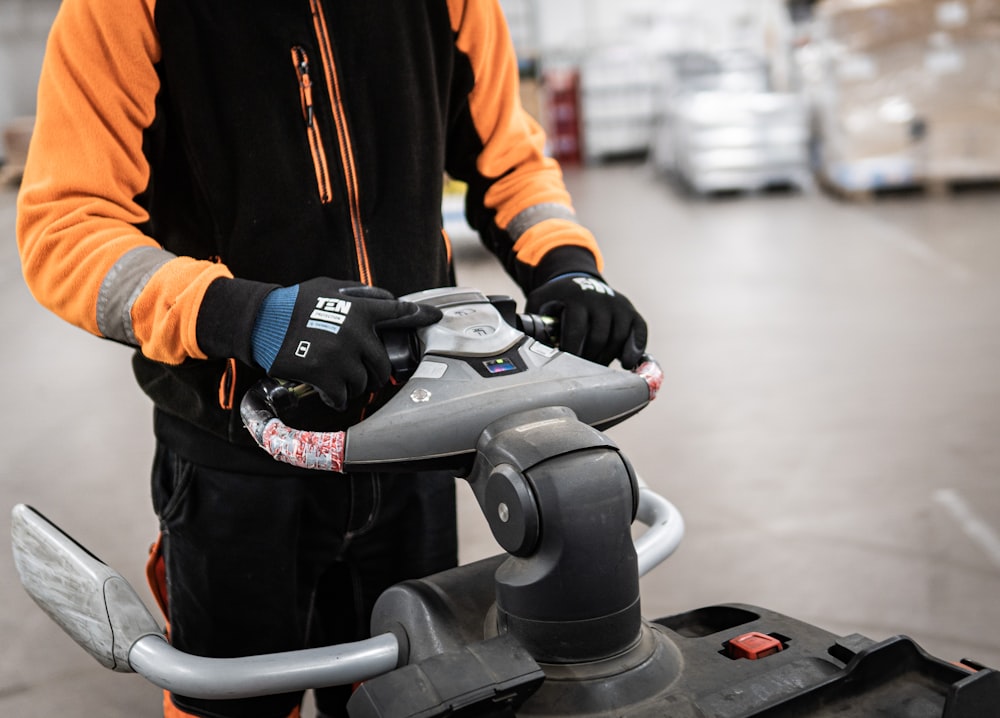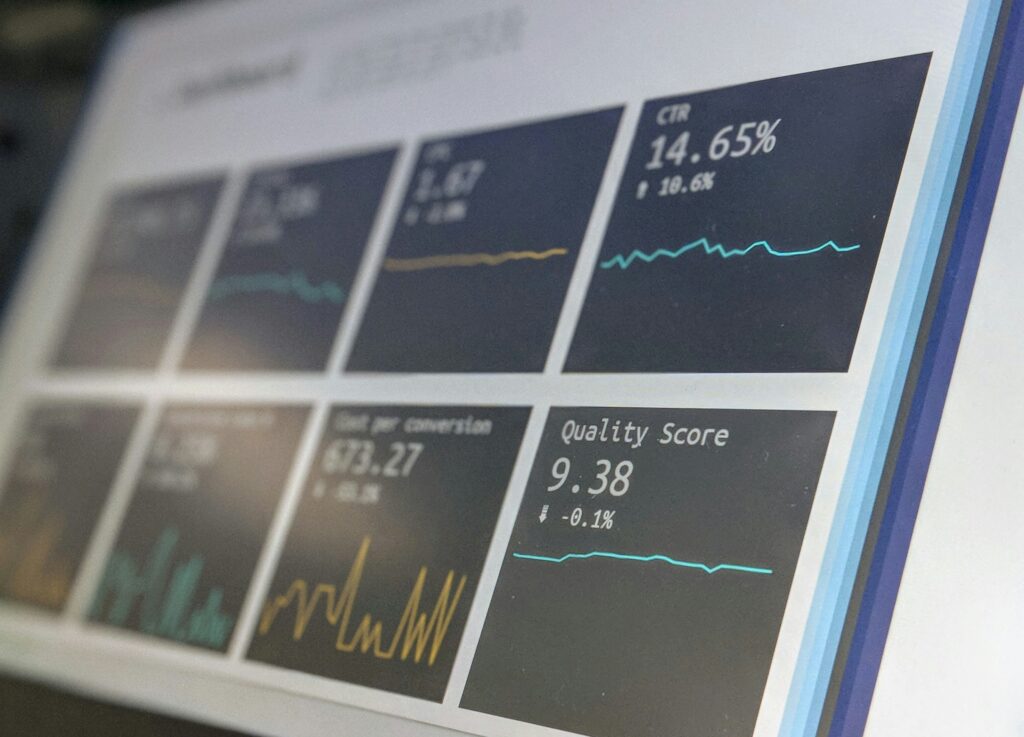5 steps to prepare for the Electronic Trade Document Act
Blog 8 mins
Topics

On the 20th September 2023 the new Electronic Trade Document Act was passed that gives digital trade documents the same legal status as paper documents. This marks a new beginning in the future of digital trade and is set to change the way goods are shipped in the UK and internationally. Product classification is one part of the future of digital trade and our leading TariffTel solution ensure accurate and compliant classification for goods shipping internationally. It pays to understand the impact this new Act will have on trade going forward.
Here’s everything you need to know about the Act and our five steps to preparing for a digital trade future.
What is the Electronic Trade Document Act?
In July, the new Electronic Trade Document Act was given royal assent from the King and passed into law on 20th September 2023 paving the way for the future of digital trading worldwide. This new law gives trade documents the same legal status as physical ones and aims to make foreign trade more efficient, cleaner and cheaper.
The Act has been welcomed by the industry with 75% of delegates at a recent Institute of Export & International Trade (IOE&IT) webinar saying it would have a positive impact on their business. 65% of attendees said the speed and efficiency benefits of swapping paper documentation for digital was the most important opportunity, while a further 23% selected improvements in security and visibility of trade.
Why have some called the Act a ‘game-changer’ for trade?
Chris Southworth, Secretary general of the International Chamber of Commerce (ICC) describes the law as game-changing not just for the UK, but for global trade. He says, “The act will enable companies to finally remove all the paper and inefficiency that exists in trade today and ensure that future trade is far cheaper, faster, simpler and more sustainable. This presents a once-in-a-generation opportunity to transform the trading system and help us drive much-needed economic growth.”
Given the UK’s far reaching trade network, the ICC estimates that 80% of trade documents around the world are now based on English law to some extent.
From a sustainability point of view, the reduction in paper waste could be significant. The shipping container industry is estimated to generate 28 million paper trade document each day in the UK. By converting these paper documents to digital documents, processes can become more automated and quicker and have a positive environmental impact in waste reduction.
Digitising trade documents and processes is set to change the way the industry works forever. For the better.
As Paul Scully, minister for technology and the digital economy, rightly says, “The global container shipping industry generates billions of paper documents a year – and, in reality, there’s no need for the immense costs UK businesses have to face in producing them and the detrimental environmental impact that this has.”
Five steps to digital trade
Whilst the legislation is currently non-mandatory and it is therefore optional for businesses to start using digital documents, this Act spells the future of digital trade and what’s to come. Businesses that embrace digitisation early will be at an advantage, benefiting from greater efficiencies and quicker processes. Here’s what your business can do now to prepare for a digital trade future.
1. Ensure secure data management processes are in place
Elizabeth Davies, TariffTel’s Customs System Manager, says, “Trusting a technology provider with your company’s data will be a big consideration for businesses considering this Act. Real-time data will need to be accessible to suppliers, partners and carriers, and businesses will need a robust data management plan in place to facilitate the sharing of data.”
John Nicholson, our Head of Infrastructure and Service Delivery explains more. “To comply with the requirements of this Act, a robust data management plan should centre on secure, real-time data sharing capabilities. This would involve deploying secure APIs and standardised data formats to facilitate seamless data exchange with suppliers, partners, and carriers. Clearly defined data access policies, along with robust encryption methods, should be in place to uphold data integrity and security. Ongoing real-time monitoring and comprehensive audit trails are also pivotal for ensuring both compliance with the Act and trust amongst all stakeholders involved. These measures not only fulfil legal obligations but also improve operational efficiency and data transparency.
It’s worth remembering that the information shared to all parties as part of this Act will only be as good as the data collected and provided by all parties involved. “
2. Invest in a trusted customs classification solution to assign HS codes

Our TariffTel platform is a secure and trusted solution that allows products to be classified at source so that the required data is collected before goods are shipped thus negating delays. Unlike other solutions that rely on AI to interpret the HS book, our solution is built and maintained by our team of customs classification experts who are immersed in the world of customs. They constantly update our master database so at all times it is fully up-to-date, and they can solve even the most complex of classification queries which cannot be determined by machine learning.
We will be developing our product offer and services to support businesses in progressing further in their trade digitisation journey to meet the expectations set out in this important Act to realise the future of digital trade.
3. Stay on top of trade regulations
 The shipping industry is governed by regulation that differs country by country and it can be complex. It pays to be on top of any changes to regulation, as and when they happen, to ensure your business is fully compliant.
The shipping industry is governed by regulation that differs country by country and it can be complex. It pays to be on top of any changes to regulation, as and when they happen, to ensure your business is fully compliant.
Some countries will require documentation that others don’t and in the case of this new Act, it’s important to know what data and documentation you need for each shipment your business makes.
In the case of classification, there can be new commodity codes, merging commodity codes and description updates to commodity codes. Staying on top of these changes with a technology solution like TariffTel that is updated regularly means that you will continue to use accurate HS codes.
4.Ensure robust disaster recovery systems are in place

Time is of the essence in disaster recovery and getting systems back up and running quickly after a disruption should be a priority to minimise the impact. This is where the importance of continuity planning is crucial.
Often it can be the case that companies’ backup their data off-site but do not have the required computing equipment such as servers at another location to restore the data. This means that although the data is safe, it can still take a number of days/weeks to acquire the necessary hardware to restore the data and get systems back up and running.
At CORE we are backing up customer data in real-time to a remote standby system at a different data centre. All the hardware required to run the system is already set up and ready to go when required.
5.Engage your suppliers – they know your products best

Each product being transported needs a HS code which is used by customs authorities around the world to identify products when assigning duties and taxes. Although many countries have adopted the same classification system from the World Customs Organisation (WCO), each country can interpret it differently. This can create added complexities for customs classification teams tasked with navigating the HS code book, which, in itself, is constantly being updated.
Even if teams use a simple classification tool or manual process, having to look up HS codes, product by product, is time consuming and often impractical. An invoice description rarely details all the essential characteristics and late changes in fabric or material composition can further complicate the process and lead to inaccuracies. From our classification assessments, we estimate that the majority of UK businesses that are not using a digitised customs classification solution are only 60-80% compliant in their classifications and could be facing fines and excessive border delays as a result. With the help of suppliers, customs classification teams can digitally capture essential characteristics and images of thousands of product items with minimal effort, leading to accurate, unambiguous, and auditable classifications and duty rates, facilitating digital trade.
Find out more about our customs classification solution, TariffTel, how the platform supports businesses in avoiding border delays and non-compliance fines with inaccurate HS codes.
Get in touch to speak to our team about the impact the Electronic Trade Document Act will have on your business and how to prepare.
Other useful resources
Team spotlight – Elizabeth Davies, Customs Systems Manager
This month it's our Customs System's Manager, Elizabeth Davies, taking a turn in the hot s...
How TariffTel transforms your approach to customs classification
International trade today is a dynamic and evolving world to operate in. Whichever sector ...
How technology integration is transforming customs classification
In today's rapidly evolving global marketplace, the successful adoption and integration of...




